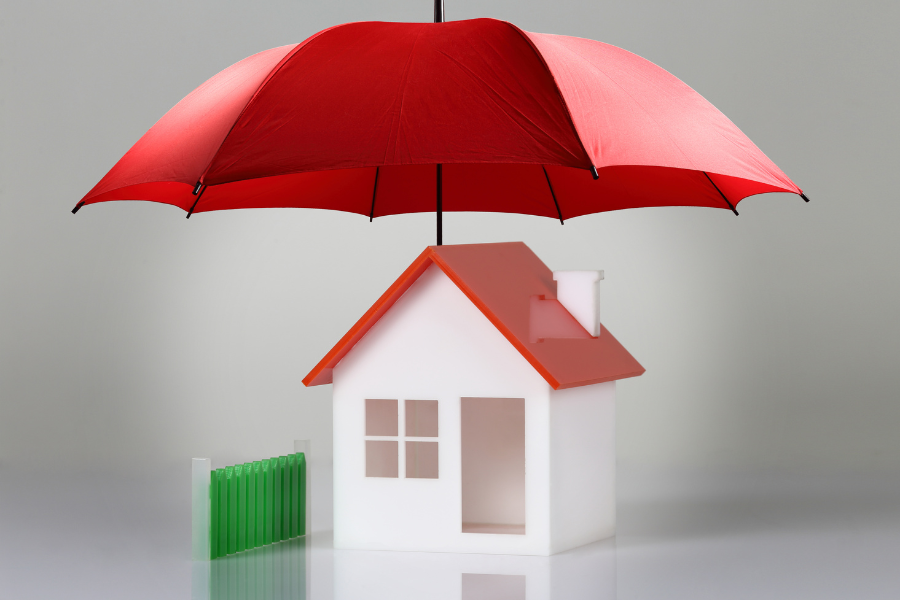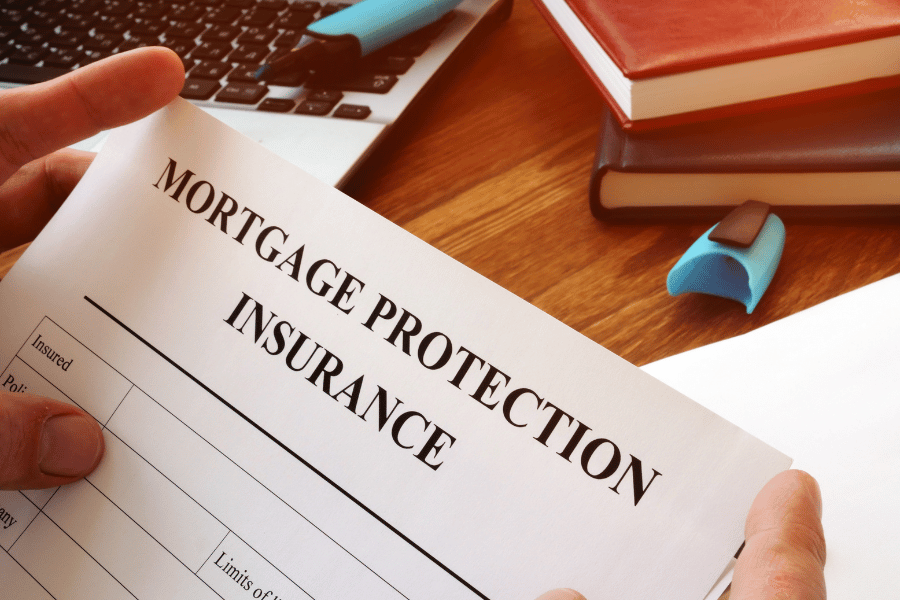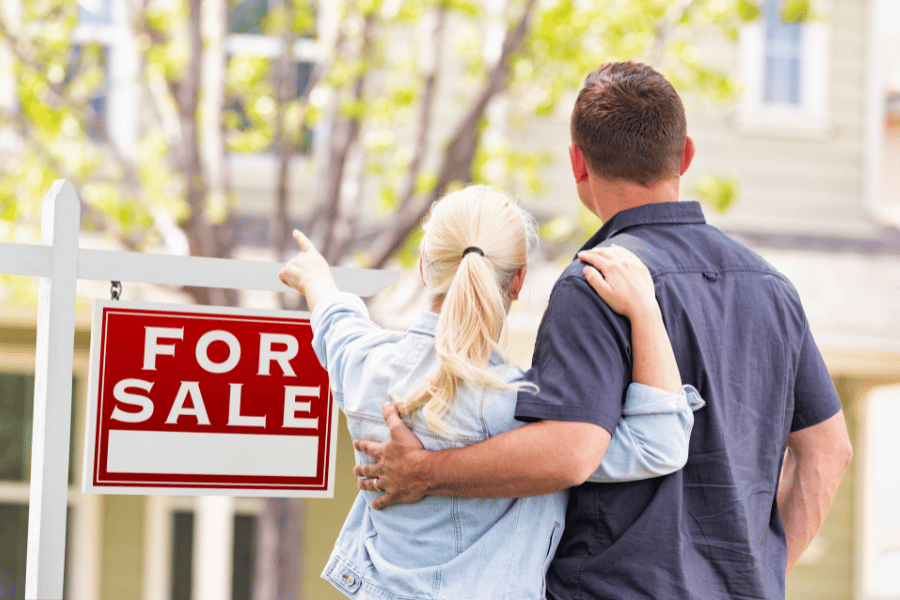Homeowners Insurance Vs. Mortgage Insurance: What's the Difference?

Homeowners Insurance Vs. Mortgage Insurance: What's the Difference?
Are you wondering about the differences between homeowners insurance and mortgage insurance? Here is everything you should know about the variances of these insurances.
Understanding terms like homeowners insurance and mortgage insurance can be challenging when purchasing a home, particularly for first-time buyers. It's crucial to comprehend the importance of these insurances and the distinctions between them.
Both homeowners insurance and mortgage insurance add to the cost of property ownership, and you'll likely encounter both during the mortgage process. Homeowners insurance safeguards your home and its contents, while mortgage insurance, also known as private mortgage insurance (PMI), protects your mortgage lender in the event of payment default.
It's imperative to recognize that while these insurances may appear similar, they serve different purposes and cover distinct risks. Many prospective homeowners become perplexed by these terms during the home-buying process.
As you embark on house hunting and navigate the prequalification process for mortgage loans, it's essential to assess each type of insurance, understand their necessity, and differentiate between them. Read on to gain further insight into mortgage and homeowners insurance and their variances.
Here are the differences between homeowners insurance and mortgage insurance.
Chapters
1. Mortgage Insurance
Some lenders require mortgage insurance, also known as private mortgage insurance, to protect their interests if you default on your loan. It does not cover the home or protect you as the homebuyer; instead, it protects the lender in case you are unable to make payments.
Buyers of conventional loans must pay for PMI when making a down payment of less than 20% when purchasing a home. The PMI premiums will be automatically canceled after a certain portion of the mortgage is repaid, typically when you reach a 78% loan-to-value ratio.
With PMI, the homeowner usually pays a percentage of their total mortgage cost each year. If you are unable to make payments, the insurance company will pay the lender on your behalf. Adding PMI to your monthly bills can raise the cost of owning a home.
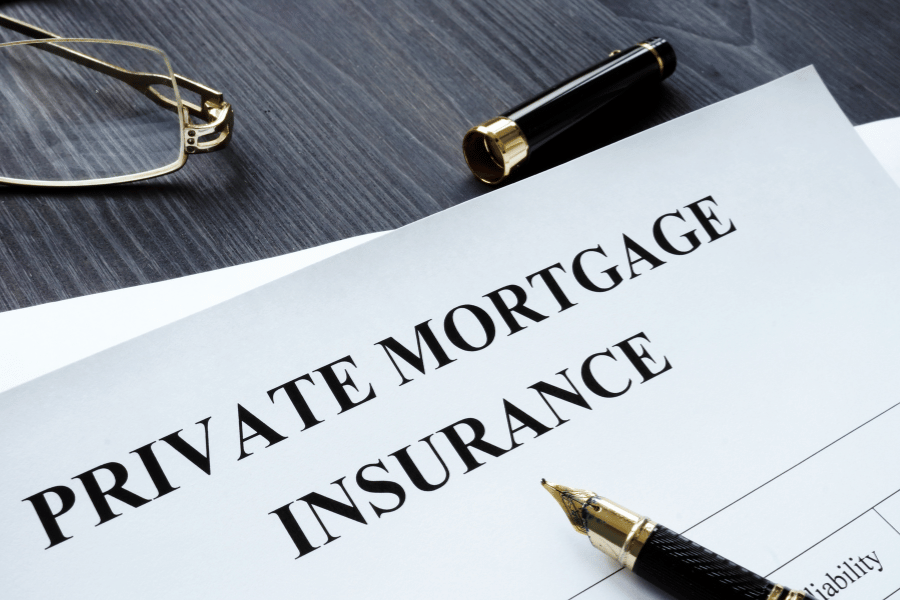
How to Avoid PMI?
- Put at least 20% down. Conventional mortgage lenders usually won't require mortgage insurance if you put more than 20% down
- Use a piggyback loan. If you can not afford to put down 20% down, you could take out a second mortgage
- Get a government-insured loan. If you are eligible, consider a government-insured loan
- Cancel your PMI. You can get rid of PMI when the principal balance of your mortgage falls to 80% of the original value of your home
How Long is PMI Required?
You have the right to demand that your lender cancel PMI when your mortgage's principal balance is scheduled to reach 80% of the original value of your home. You must also be aware that you can cancel your PMI earlier if you make additional payments that reduce the principal balance to 80% of the original home value.
For FHA loans, you must insist on canceling PMI after 11 years if you made a down payment of more than 10%. If your down payment is less than this amount, you will be required to pay PMI for the life of your FHA loan.
Mortgage Disability Insurance
Long-term disability insurance provides a percentage of your pre-disability income to cover living expenses when you can't work, while mortgage disability insurance specifically covers your mortgage payment.
This type of coverage is particularly beneficial for individuals in high-risk industries or those without existing disability insurance. It can be obtained through your mortgage company or independently. Mortgage disability insurance can alleviate stress by directly paying the mortgage company, allowing you to focus on recovery.
2. Homeowners Insurance
Homeowners insurance, also known as hazard insurance, is specifically designed to protect your home's structure and property from substantial financial losses caused by events such as fires, storms, and other perils specified in your policy. If a covered event damages your home, your home insurance company will definitely cover the repair costs minus your deductible.
Homeowners insurance is a vital form of property insurance intended to safeguard your home and its contents from damage caused by unexpected events. Furthermore, most homeowners insurance policies provide robust liability coverage in case of injuries on your property and comprehensively cover expenses related to damage or loss.
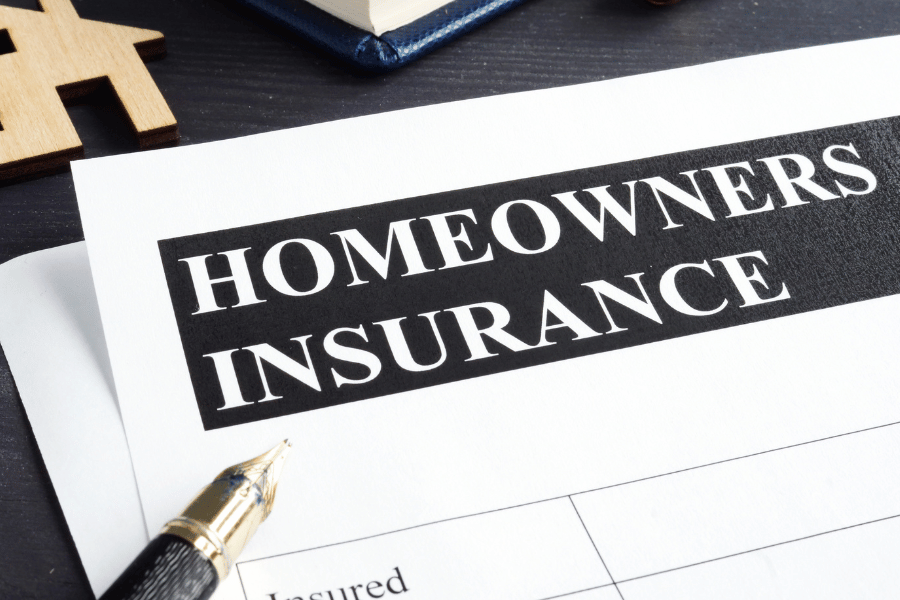
A homeowners insurance policy may include coverage for your:
- Homes structure
- Personal belongings
- Liability in lawsuits for injuries that you, family members, and pets cause to other people
- Medical expenses if someone is hurt in your home
- Extra living expenses while your home is uninhabitable
Remember that homeowners insurance policies come with limits, usually excluding damage caused by natural disasters like floods, mold, earth movements such as earthquakes, or even drain backups and overflow.
3. Key Differences
According to Investopedia, the key differences between two types of insurance can be summarized as follows:
| Homeowners Insurance | Mortgage Insurance | |
| Covers | Homeowners directly and mortgage lenders indirectly | Mortgage lender |
| Does Not Cover | Coverage for property damage caused by losses such as arson, flooding, sinkholes, and earthquakes. | Homeowner |
| Payment Form | The policyholder pays the premium directly to the insurance company or to the mortgage insurance company, which then pays homeowners insurance from an escrow account managed by the lender. | The borrower pays monthly payments and/or a portion of the closing cost of a home purchase to the mortgage insurer as set by the lender. |
| Average Annual Cost | The nationwide average is about $1,026 per year. | It depends on the loan amount, the borrower's credit score, and the borrower's loan-to-value ratio. For a property worth $250,000, the cost ranged from $1,071 to $1,181 per month. |
4. Insurance Cost
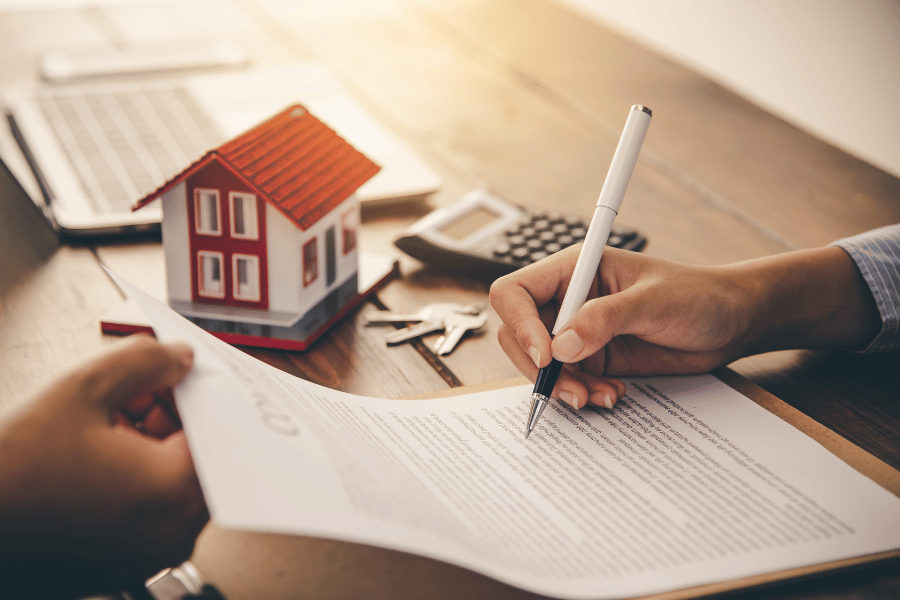
Homeowners Insurance
The national average cost of home insurance is about $1,582 per year, according to a Forbes Advisor analysis for a policy with $350,000 of dwelling coverage. Your homeowner's insurance cost will vary depending on factors such as:
- Age of home
- Proximity to a fire hydrant or water source
- Your personal claim history
- The claims history at your property
- The average limits and deductible amount
- materials your home is made of
- Rebuilding cost of the home
- Your credit
- Your ZIP code
Mortgage Insurance
According to the Urban Institute, a nonprofit social and economic policy research group, PMI cost can range between 0.6% and 1.9% of your home loan amount. If you borrow $300,000, your PMI could cost anywhere from $1,800 to $5,700 a year.
Your PMI cost will depend on several factors, including:
- amount of your down payment
- Credit score
- Mortgage type: Fixed-rate mortgages may have lower charges than adjustable-rate mortgages
- Loan amount
5. Do I Need Homeowners or Mortgage Insurance?
Homeowners Insurance?
Homeowners insurance is a valuable protection that many homeowners choose to maintain even after paying off their mortgage. In fact, most mortgage lenders require this insurance to safeguard your home in case of irreparable damage or destruction. This requirement, known as the mortgage clause, assures that the insurance company compensates the lender.
Maintaining homeowners insurance is a thoughtful financial decision due to the high cost of home replacement and potential legal expenses. The monthly premiums are often significantly lower than the expenses you could face in the event of a covered disaster or liability claim.
This coverage provides peace of mind and safeguards against the financial burden of rebuilding your home or replacing your possessions. It's a positive and proactive measure to ensure your long-term security and well-being.
Mortgage Insurance?
Borrowers are typically required to obtain mortgage insurance when providing a down payment of less than 20% of the home's purchase price, depending on the lender. Private mortgage insurance is applicable when taking a conventional loan or refinancing a home with less than 20% equity.
Lenders demand PMI because they consider mortgages backed by less than a 20% down payment as risky and want protection in case payments cannot be met. PMI can usually be canceled once enough of the loan is paid off to reach 80% of the home's original value.
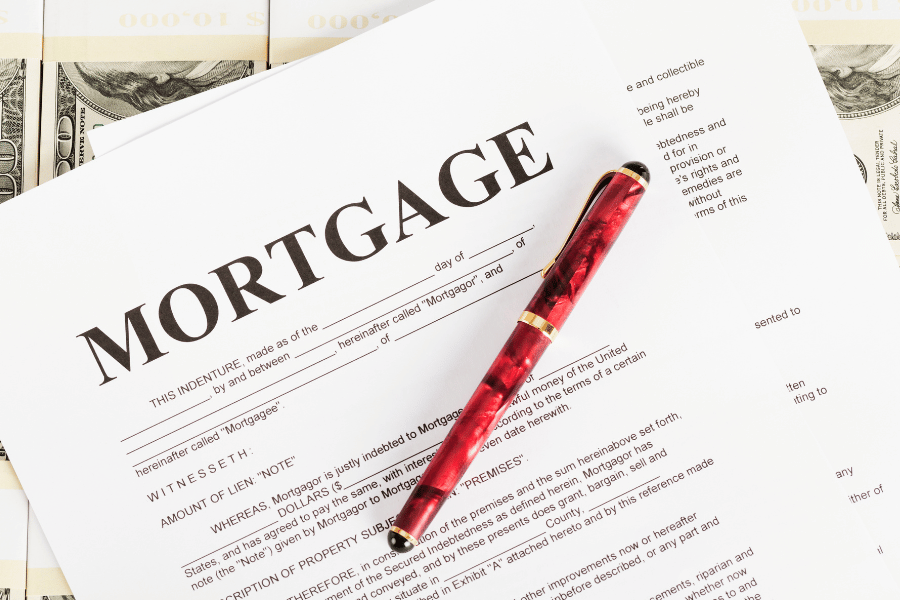
The appraisal for this valuation is determined by the contract sales price or appraised value at purchase. A history of on-time payments and being up-to-date with payments is required for cancellation. Depending on the loan-to-value ratio at the time of taking out the loan, loan terms may require maintaining the length of the mortgage.
Methodology
We used information from different sources and our data to create this guide on the differences between homeowners insurance and mortgage insurance. We combined various data sets to help you learn more about homeowners and mortgage insurance.
The following are a few sources we used to gather most of our information about homeowners and mortgage insurance.
FAQS
Are mortgage insurance and homeowner's insurance the same?
No, mortgage insurance (PMI) is different from home insurance. It does not protect your home's structure or personal property or offer liability coverage. Mortgage insurance is for your lender's protection in case you default on your mortgage, while homeowners insurance is meant to protect you and your home.
What does mortgage insurance cover?
Mortgage insurance, no matter what kind you have, protects the lender, not you, in the event that you fall behind in payments. If you fall behind, your credit score could suffer, and you can lose your home through foreclosure.
What happens if you have a mortgage and no homeowners insurance?
If you have a mortgage or another loan, it is crucial to have an insurance policy in place; it is likely a requirement of your loan agreement. Your lender will be promptly notified of policy renewals and cancellations. Failure to purchase coverage or letting it lapse may result in your company defaulting on your mortgage.
What is the average cost of mortgage insurance?
In most cases, you'll be responsible for paying borrower-paid mortgage insurance (BPMI), which will be included in your monthly payments. Expect to allocate about 0.5% to 1% of your loan amount annually for PMI.

Homeowners Insurance Vs. Mortgage Insurance: What's the Difference? - The Bottom Line
Understanding terms like homeowners insurance and mortgage insurance may seem challenging, especially for first-time homebuyers. It's essential to grasp the importance of these insurances and differentiate between them.
When purchasing a new home, it's vital to understand that mortgage insurance and homeowners insurance are not interchangeable. Mortgage insurance may be mandatory based on your financial situation, while homeowners insurance is generally a requirement from your lender.
It's crucial to grasp that these insurances serve distinct purposes and cover different risks. Many prospective homeowners find these terms confusing during the home-buying process.
As you embark on your house hunt and navigate the prequalification process for mortgage loans, it's essential to carefully assess each type of insurance, comprehend their necessity, and differentiate between them.
If you are considering moving or selling, contact us or visit our website. Our team at Raleigh Realty is here to help you with any home buying or selling needs.

Ryan Fitzgerald
Hi there! Nice to 'meet' you and thanks for visiting our Raleigh Real Estate Blog! My name is Ryan Fitzgerald, and I'm a REALTOR® in Raleigh-Durham, NC, the owner of Raleigh Realty. I work alongside some of the best Realtors in Raleigh. You can find more of my real estate content on Forbes, Wall Street Journal, U.S. News and more. Realtor Magazine named me a top 30 under 30 Realtor in the country (it was a long time ago haha). Any way, that's enough about me. I'd love to learn more about you if you'd like to connect with me on Facebook and Instagram or connect with our team at Raleigh Realty. Looking forward to connecting!
Related Blogs
![How Much Does Homeowners Insurance Cost? [2024]](https://raleighrealtyhomes.com/storage/blogs/July2024/tz2Wb8QOE1Z5cGEUB5Rj.png)
